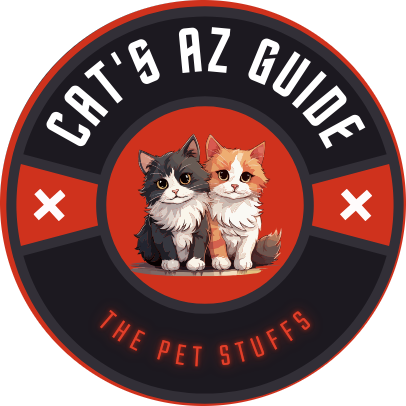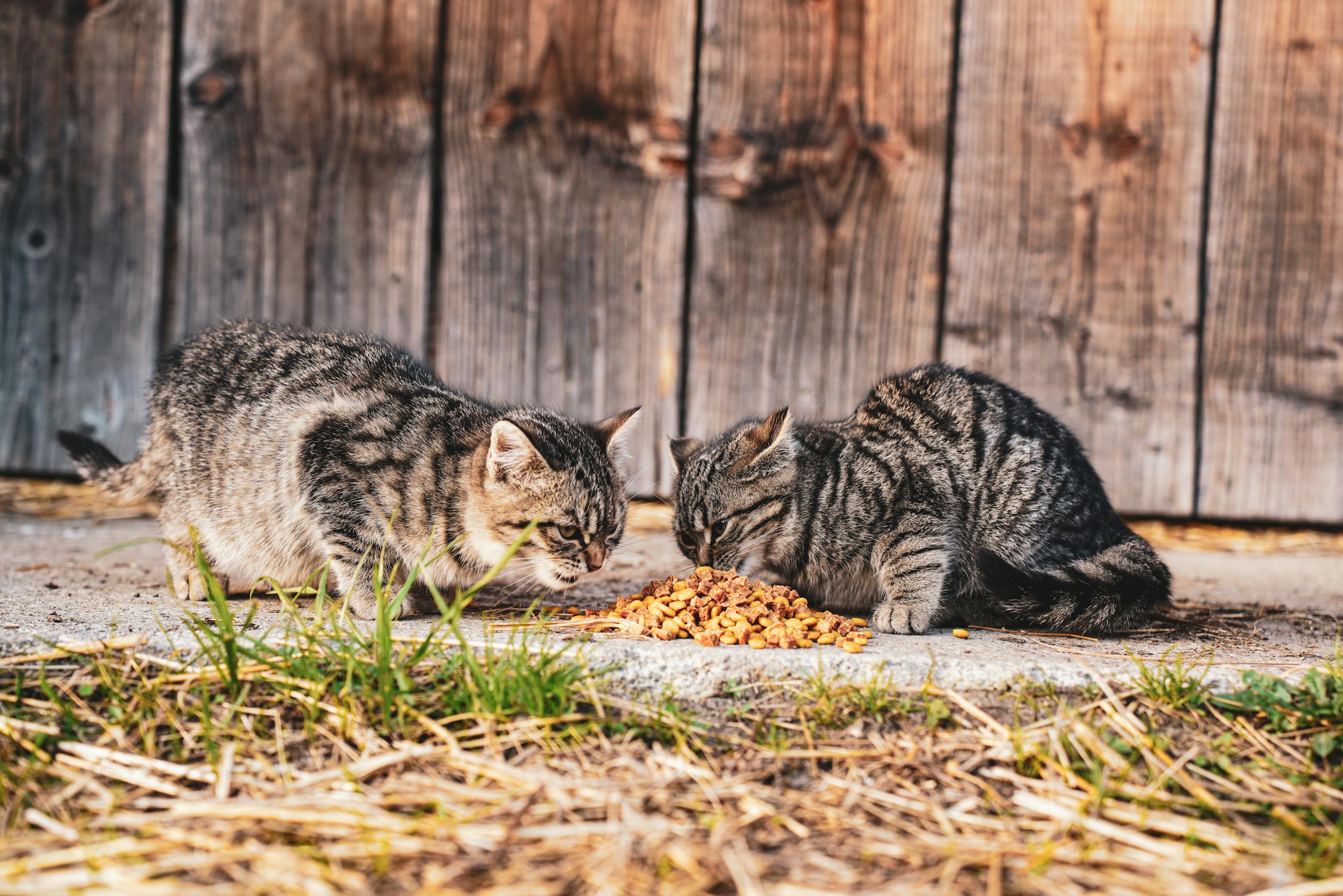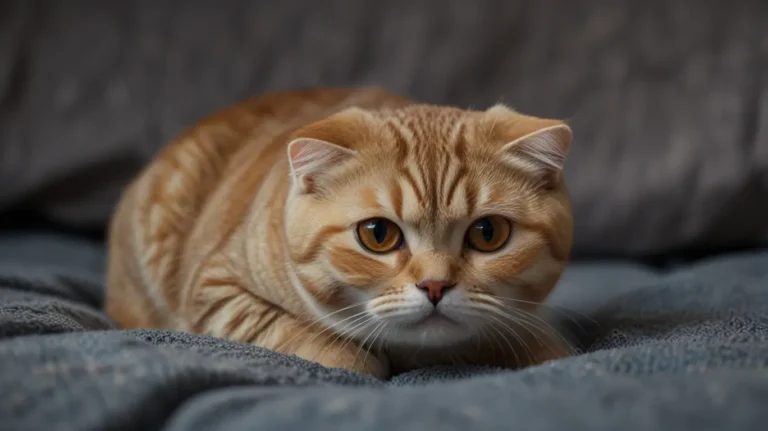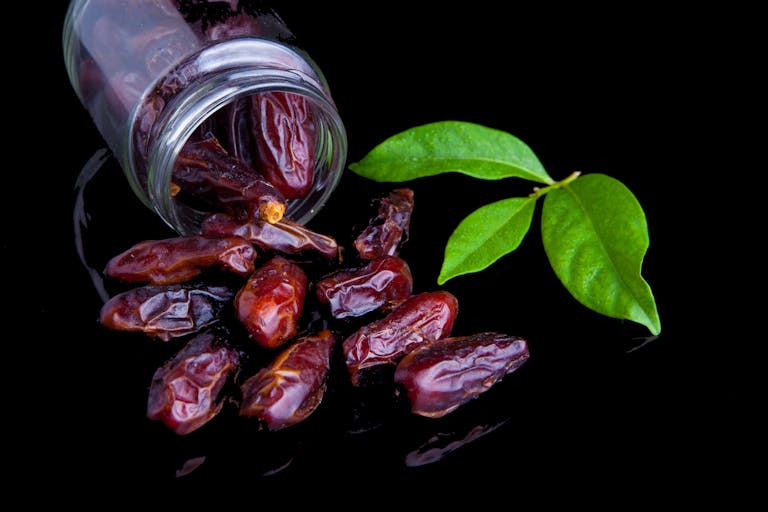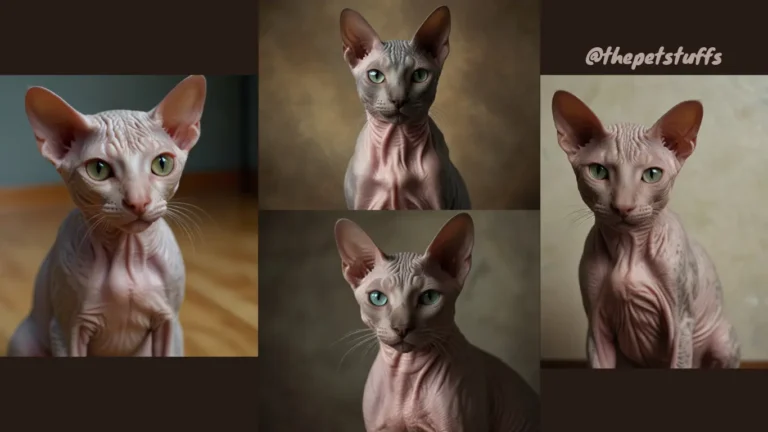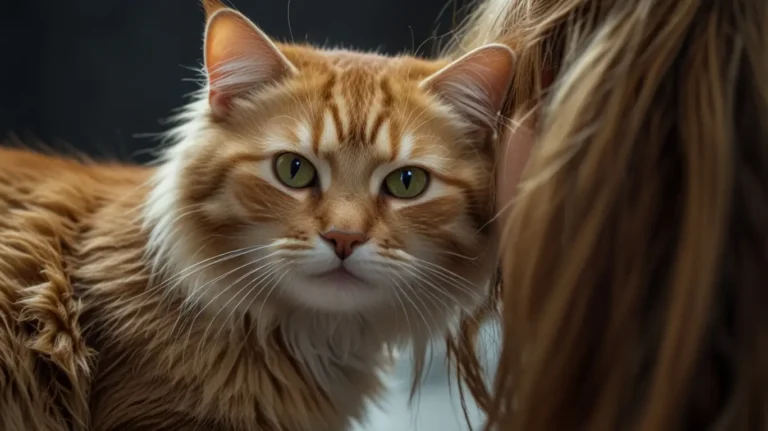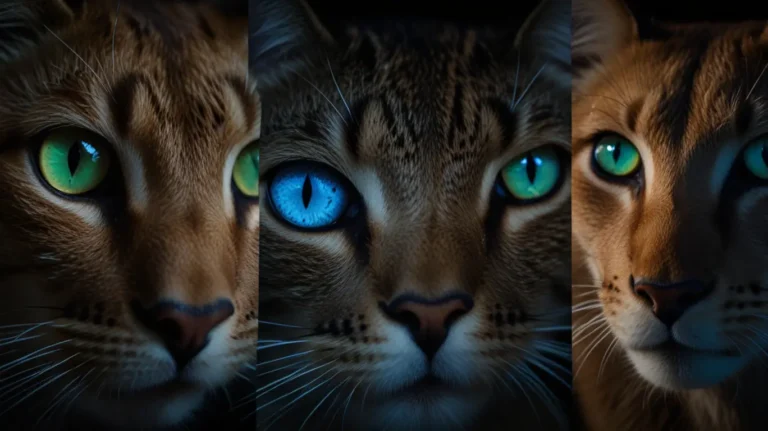Cat Nutrition Essentials – What Every Cat Owner Should Know?
Ever wondered what goes into keeping your cat healthy and thriving? A well-balanced diet is essential to your cat’s overall health, but how can you be sure you’re feeding them the right nutrients?
In this article, we’ll explore the nutritional needs of cats, including the daily essentials they require, how to calculate cat nutritional value, and what to look for in cat food to ensure your feline gets the best nutrition possible.
Key Takeaways:
- What makes cat food nutritional? We’ll dive into what ingredients are crucial for a well-balanced cat diet.
- Essential nutrients for cats like proteins, fats, and vitamins that keep them healthy.
- Daily nutritional requirements your cat needs to meet for optimal health.
- Cat nutritional value chart to help you track and balance your cat’s food intake.
- How to enhance cat food nutrition with supplements and additional nutrients.
What Makes a Nutritional Cat Food?
Healthy food for cats contains all the nutrients a cat needs, such as minerals, fats, proteins, and other supplements.
Cats are carnivorous and consume proteins of animal origin to survive. Protein is a primary and essential nutrition in a cat’s diet.
Other nutrients, such as lipids for energy and hair quality, taurine, and amino acids for heart health and eyes. You should avoid crops such as wheat and millet due to their low nutritional value.
See also Can Cats Eat Coconut?
To ensure your cat’s nutritional diet, create a meal plan that is low in fat, protein, and carbohydrates.
Essentials Nutrition For Cats
Cats require certain nutrients to thrive, including protein from animal sources, healthy fats, vitamins, and minerals.
Protein should make up the majority of a cat’s diet as it provides the building blocks for muscle growth and repair. Fats help with energy production and maintaining a healthy coat, while essential vitamins such as A, D, E, and K support various bodily functions.
Additionally, taurine, an amino acid found in animal tissue, is critical for a cat’s heart and eye health. Without a well-rounded diet, cats can suffer from malnutrition, leading to serious health complications.
Cat Daily Nutritional Requirements
An adult cat requires approximately 200-250 calories per day, depending on weight and activity level. Ideally, a cat’s diet should have 26-30% protein and 9-15% fat.
Carbohydrates, while not required, can be consumed in modest amounts, but it is advisable to limit your intake. Cats require a consistent supply of water for hydration, which can be supplemented with wet cat food.
See also Is Peanut Butter Safe for Cats?
To ensure your cat’s daily nutritional needs are met, feed them high-quality, nutritionally balanced cat food, as well as clean water.
Cat Nutritional Value Chart
| Nutrient | Daily Requirement |
|---|---|
| Protein | 26-30% (Animal-based) |
| Fats | 9-15% |
| Taurine | 50-100 mg |
| Water | 60-70 ml/kg of body weight |
| Calories | 200-250 kcal |
| Fiber | 1.5-2% |
| Vitamins A, D, E, K | As per cat food formulation |
Cat Nutritional Value Calculator
A cat nutritional value calculator is a tool that assists pet owners in determining the appropriate daily intake of calories and nutrients for their cats based on characteristics such as age, weight, and activity level.
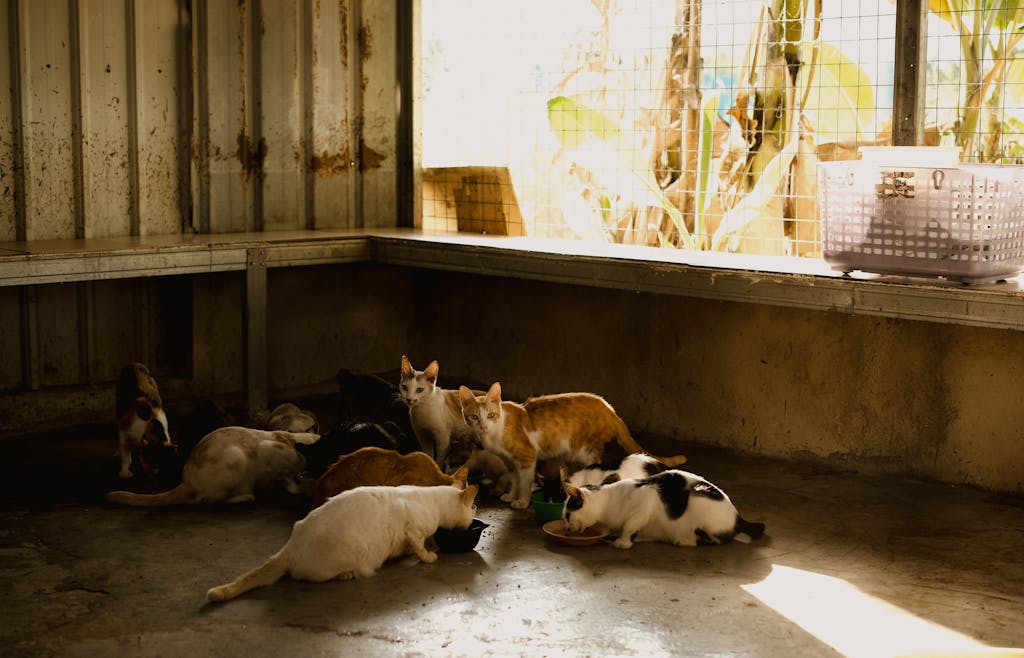
These calculators allow you to enter your cat’s information and receive suggestions on how much food, protein, fat, and other critical nutrients your cat requires daily.
These tools are especially useful for detecting whether you’re feeding your cat too much or too little, as well as making sure the food is nutritionally balanced for maximum health.
Cat nutritional value calculator calculate your cat’s nutritional needs, especially for calories, protein, and other key nutrients, you can use the following formulas based on their weight and activity level.
See also Why Pampas Cat are so rare?
These formulas give you a basic idea of how much to feed your cat daily. Always adjust according to your cat’s individual needs and consult with a vet for a more tailored plan.
1. Daily Caloric Needs Formula
To calculate your cat’s daily caloric needs, use the formula below:
Resting Energy Requirement (RER):
RER = 70 × (weight in kg) ^ 0.75
Daily Energy Requirement (DER):
Multiply RER by a factor depending on your cat’s activity level:
- Indoor (sedentary): RER × 1.2
- Moderately active: RER × 1.4
- Very active (outdoor or playful): RER × 1.6
Example:
For a 4 kg indoor cat:
RER = 70 × (4)0.75 = 197 kcal/day
Daily Energy Requirement (DER) for an indoor cat:
197 × 1.2 = 236 kcal/day
2. Protein Requirement Formula
Cats require high amounts of animal-based protein. The formula for calculating protein needs is based on body weight.
Protein Needs:
Protein Requirement = 5g × (weight in kg)
Example:
For a 4 kg cat:
Protein Requirement = 5×4 =20 g/day
3. Fat Requirement Formula
Cats need moderate fat intake for energy and coat health. The fat requirement can be calculated as:
Fat Needs:
Fat Requirement = 2.2g × (weight in kg)
Example:
For a 4 kg cat:
Fat Requirement = 2.2×4 = 8.8 g/day
4. Water Intake Formula
Water is essential for a cat’s hydration. Cats typically need about:
Water Requirement = 60−70ml × (weight in kg)
Example:
For a 4 kg cat:
Water Requirement = 60×4 = 240 ml/day
By using these formulas, you can estimate your cat’s daily caloric intake, protein, fat, and water needs. These values help you ensure that your cat’s diet is nutritionally balanced and suited to their individual requirements.
What Are the Nutritional Needs of Indoor Cats?
Indoor cats generally have lower activity levels compared to outdoor cats, meaning they require fewer calories but still need a balanced intake of protein, fats, and vitamins.
See also Cat Food Recipe Ideas
Their diet should focus on high-quality protein, moderate fats, and controlled calorie intake to prevent obesity. Indoor cats may also benefit from extra fiber to help with digestion.
How Do I Add Nutrition to My Cat’s Food?
You can add cooked or raw meats, like turkey or chicken, to your cat’s food to increase its nutritional value and protein content.
Either fish oil or other supplements containing omega-3 fatty acids can help to strengthen the coat and skin. You can also include tiny amounts of fiber-rich vegetables, such as pumpkin, in your diet to help with digestion.
Which Cat Food Is Healthiest for Indoor Cats?
The healthiest cat food for indoor cats is one that is high in animal-based proteins, low in carbohydrates, and includes essential fatty acids.
See also Why your cat crouching?
Look for cat foods specifically formulated for indoor cats, as these typically have fewer calories to account for their lower activity levels. Wet food is often preferred as it helps with hydration and is closer to their natural diet.
What Supplements Do Cats Need?
Supplements like probiotics for digestion, omega-3 fatty acids for coat health, and taurine—which is vital for heart and eye health—may be beneficial for cats.
Prior to introducing supplements, always check with your veterinarian to be sure they are safe and essential for your cat.
What Should I Be Adding to My Cat’s Food?
You can add raw or cooked lean meats, such as chicken or turkey, to increase protein levels.
Small portions of pumpkin or sweet potatoes can offer additional fiber, while fish oil can help with skin and coat health. Always ensure added ingredients are safe and prepared properly.
Is Eating the Same Food Become Boring for Cats?
Yes, cats can become bored of eating the same food. Rotating flavors or brands of food while ensuring the nutritional balance is maintained can help prevent boredom. However, make sure any transitions are gradual to avoid digestive upset.
Cat Nutritional Value FAQs
How much protein is in a cat?
Cats generally need around 26-30% protein in their daily diet to maintain healthy body functions.
How nutritious is cat food for humans?
The nutrients required for a human diet are absent from cat chow, making it unfit for human ingestion.
How many calories for a cat?
An adult cat typically requires 200-250 calories per day, depending on its size and activity level
What is nutritional for cats?
Nutritional foods for cats include high-quality protein, healthy fats, taurine, and essential vitamins and minerals.
What is the healthiest thing to feed a cat?
A balanced diet consisting mostly of high-quality, animal-based proteins and low in carbohydrates is the healthiest meal for cats.
Final Thoughts
The secret to maintaining the general health and well-being of your cat is to give them the proper balance of nutrients.
It’s imperative to provide your cat with high-quality food that is high in fats, proteins, and vital vitamins. You should also pay close attention to portion sizes and water intake.
See also What is the Scottish Fold Cost?
You may make decisions that promote a long and healthy life for your cat by being aware of their nutritional requirements and worth.
